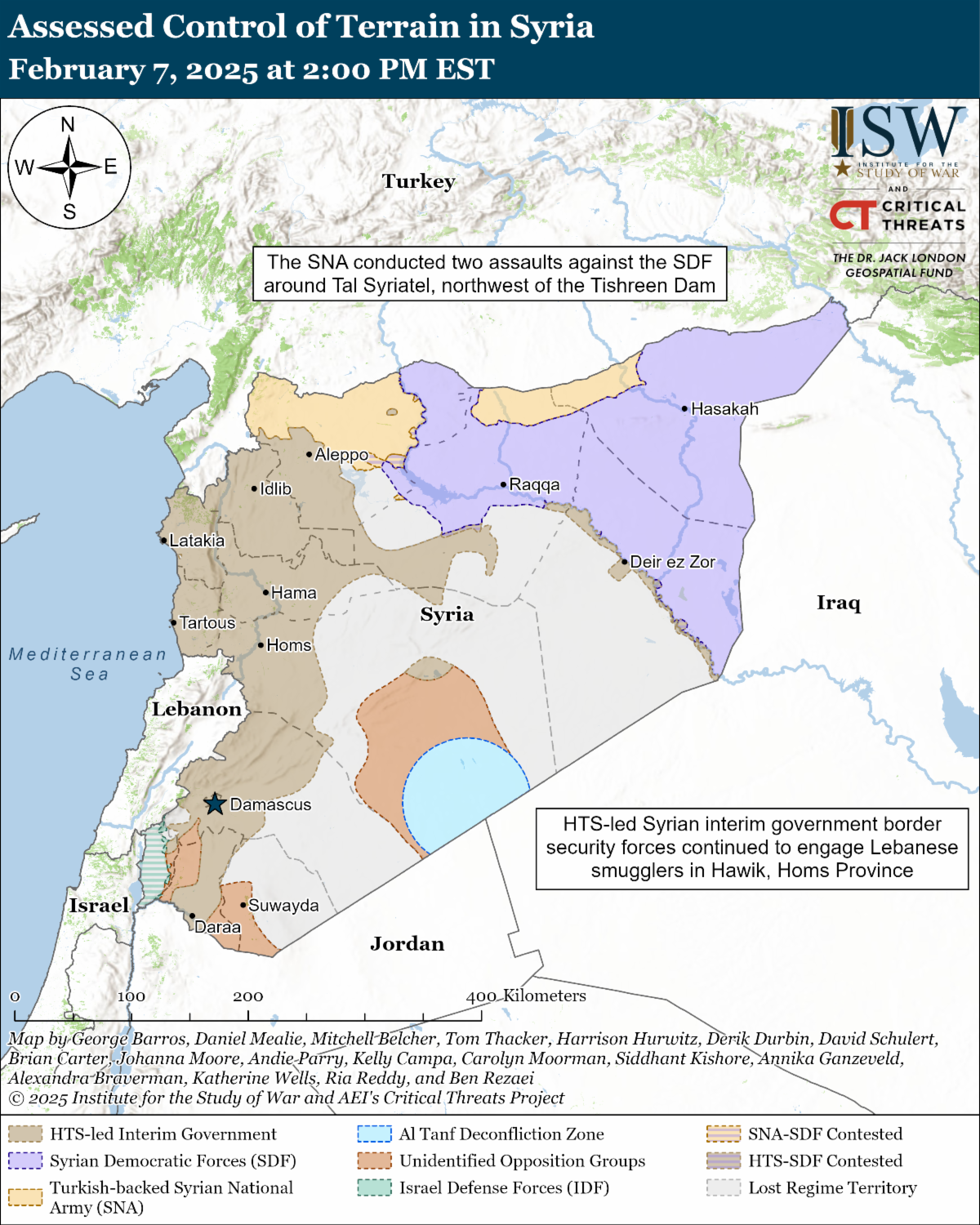Iranian Supreme Leader Ali Khamenei categorically rejected nuclear negotiations with the United States during a speech to Iranian military personnel in Tehran on February 7. This marks the first time Khamenei has so explicitly opposed negotiations with the United States since the inauguration of Iranian President Masoud Pezeshkian. Khamenei stated that negotiations with the United States are "unwise, unintelligent, and dishonorable" and "no one should negotiate" with them. Khamenei stated that Iran is not opposed to negotiations with any state ”except” the United States. Several Friday prayer leaders echoed Khamenei's statements and criticized negotiations with the United States as "futile." Friday prayer leaders receive guidance for the content of their Friday sermons from the Office of the Supreme Leader, which suggests that their comments are likely a coordinated messaging campaign. Khamenei also stated that negotiating with the United States "will not solve any problems [in Iran], including economic and livelihood difficulties." CTP-ISW previously assessed that US "maximum pressure” sanctions would likely further deteriorate the Iranian economy, which is already facing underlying economic issues.
Khamenei's opposition to negotiations with the United States appears inconsistent with the hypothesis that Iran is expanding its nuclear program to gain leverage in future negotiations. Iran is conducting nuclear research and expanding its stockpile of enriched uranium, which are both steps that could enable it to build a nuclear weapon in a period of months. One plausible reason for Iran's continued development of its nuclear program is to strengthen its position and increase leverage for future nuclear talks in order to secure more favorable terms. This would, in theory, enable Iran to extract concessions (such as sanctions relief) during negotiations by offering to decrease its stockpile of enriched uranium. Khamenei’s recent statements are inconsistent with this hypothesis, however, because Iran has no reason to increase its leverage with the West if it does not intend to negotiate with the United States. Some senior Iranian officials have recently signaled a willingness to engage in nuclear negotiations with the West, but Khamenei ultimately will decide whether Iran will negotiate, try to build a nuclear weapon, or retain a rapid nuclear breakout capability.
The Egyptian government continues to oppose US President Donald Trump’s suggestion to relocate Gazans to Egypt and Jordan. An unidentified Cairo-based Western diplomat told the Associated Press on February 6 that Egypt views Trump’s idea as a threat to Egypt’s national security. Egypt officials have warned that Trump’s proposal is a “blatant violation” of international law and could undermine the 1979 Egypt-Israel peace treaty. Israeli Defense Minister Israel Katz instructed the Israel Defense Forces (IDF) on February 6 to prepare a plan for the “voluntary departure” of Palestinians from the Gaza Strip.
Key Takeaways:
- Iranian Nuclear Policy: Iranian Supreme Leader Ali Khamenei categorically rejected nuclear negotiations with the United States during a speech to Iranian military personnel in Tehran on February 7. This marks the first time Khamenei has so explicitly opposed negotiations with the United States since the inauguration of Iranian President Masoud Pezeshkian. Khamenei's opposition to negotiations with the United States appears inconsistent with the hypothesis that Iran is expanding its nuclear program to gain leverage in future negotiations.
- Egyptian Response to US Gaza Plan: The Egyptian government continues to oppose US President Donald Trump’s suggestion to relocate Gazans to Egypt and Jordan.
- Iraqi Politics: Some Sunni political parties have continued to collaborate with more sectarian Iranian-backed Iraqi political parties on a local level, despite national-level disagreements over the General Amnesty Law. Former Prime Minister Nouri al Maliki and former Parliament Speaker Halbousi probably reached a quid-pro-quo to benefit both political parties in Baghdad.
- Russia in Syria: Interim Syrian Defense Minister Murhaf Abu Qasra stated in an interview with the Washington Post that Syria is open to Russia retaining its air and naval bases in Syria if there are “benefits” for Syria. Qasra is very likely referencing some form of economic relief to help improve Syria’s dire economic situation.
| 




 [ISW] 이란 업데이트, 2025년 2월 20일
[ISW] 이란 업데이트, 2025년 2월 20일
 [ISW] 이란 업데이트, 2025년 2월 6일
[ISW] 이란 업데이트, 2025년 2월 6일